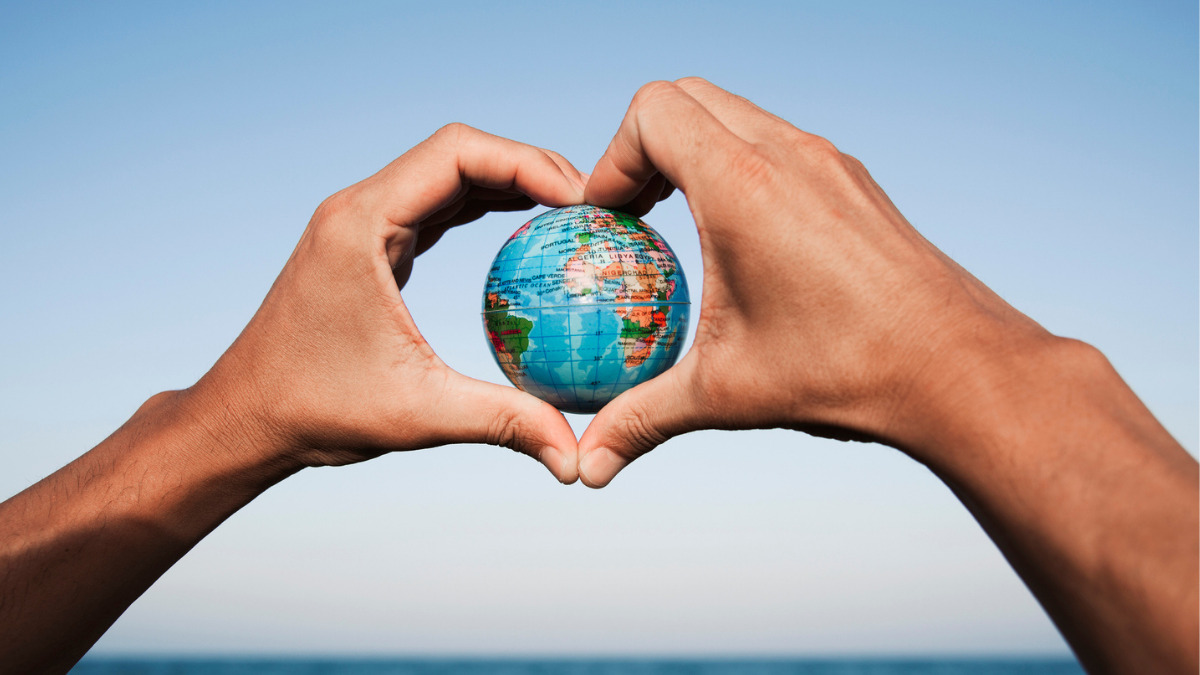Dotdigital acquires influencer marketing platform Social Snowball
Dotdigital blog
8 tips for making sustainable travel choices
Although much of the world remains in lockdown, in some countries business travel is picking up again. Down in Aus, I recently went on my first business trip to Brisbane, from Sydney, for a great event with Retail Global, and I want to start off this blog with a confession.


Folks – I forgot to pack my shampoo bar.
This felt like such a small thing at the time… But when I arrived at the hotel and saw all those miniature shampoo and conditioner bottles lined up ready for me, it hit me: my forgetfulness was going to lead directly to more landfill waste.
On that trip I spent time thinking about what other sustainable choices we can make to reduce our footprint as travel becomes an option again. When I got home, I reached out to Anna, Sustainability Strategist and co-founder of The Purpose Agents.
Together we came up with the below checklist. We understand that not all of this is going to be possible 100% of the time. But we hope this helps you identify areas where you can make a conscious choice to take more sustainable action.
Anna Forster is Co-Founder and Chief Sustainability Nerd at The Purpose Agents where she helps businesses drive change towards a more sustainable future. You can find her at: www.thepurposeagents.com
Review your travel needs
First, Anna suggested reviewing whether that trip is necessary before committing to it. She explains: “Unfortunately in Australia business trips between major cities almost always involve taking a flight. The carbon footprint of one short return economy class flight from Sydney to Brisbane is 0.5 tons of CO2e, a quarter of the monthly carbon footprint of the average Australian. If the pandemic has proven one thing, it’s just how much is possible via Zoom! Doing meetings digitally is not only giving the environment a breather, but also saves valuable time!” Work out your carbon footprint here.Offset your time in the air
If it’s important for you to make the trip and hop on a plane, please look into carbon offsetting your air travel. Many airlines will offer an attractively cheap offset as part of your ticket price. But rather than buying those, Anna recommends offsetting all flights taken by staff as part of a company-wide carbon offset at the end of the year and buying some quality certified carbon credits (e.g., Gold Standard) instead. “When doing so, this will ensure the carbon footprint is fully covered and the team can even choose which projects the company should support – yay!” Check out how to offset more than your carbon footprint, here.Bring your toiletries
Toiletries – what kick-started this all for me. Where possible, do bring your own for overnight stays. You’ve likely already got your toothbrush and toothpaste, so I’d suggest putting these in a small bag with either a re-fillable travel bottle of your favorite products; or even better, look at solid shampoo and conditioner bars. 5 reasons to ditch to shampoo bottle. These take up less space, have a lower impact on the environment, don’t leak, and are often lighter than their water-filled counterparts. Some hotels are now committed to only providing refillable shampoo and conditioner, rather than the individual packages. But you really can’t rely on this being the case unless you research the chain. Marriot has been doing this for a couple of years now.Reuse hotel towels
While you’re in the bathroom, look around for a sign that says what they will do with your towels. Many hotels will rewash towels, and sometimes linen, every day, unless you indicate that you’re happy to reuse. A typical room with 4 kg of laundry will require up to 60 liters of water, so take a second to see if you need to do anything to show that you’re happy to reuse.Get those steps in
On some trips you’re likely to need to take private transport, but do consider your local public transport options. For me, it was easy enough to get from my hotel to the event on foot, and get home from the airport in Sydney on trains, rather than needing to take an entire taxi myself for the 20-minute trip, which can save up to 80% on your carbon emissions.Don’t forget your keep cup
This one is easy for all types of trip: domestic, international, and local. Bring those reusable keep-cups, water bottles, and masks with you. We all forget things from time to time. But keeping your re-fillable drinks containers close at hand means you’re more likely to be able to save some cups and bottles from landfill. And don’t forget that the masks that airlines hand out (currently mandatory on flights in Aus) also often end up at the dump. If you do find yourself caught out, and need to take a disposable mask, remember to cut/tear those straps before it goes in the trash.Love your vegetables
I met Anna over a supercharged vegan salad bowl at another local event, where we got chatting about the impact of vegan and vegetarian choices on the environment. So, it was no surprise to me that one of Anna’s key points is to consider are your diet choices, even when on a trip. Did you know that switching to a plant-based diet is one of the best ways to fight climate change? “Correct – a vegetarian diet is generating about half the carbon footprint as a carnivorous one (a vegan one even less!), so opting for the zoodles instead of the steak makes a real difference!”Sharing is caring
Finally, ask around. There are loads of companies and individuals out there with fantastic tips of their own, and many passionate people looking to drive change from within their own business. Plus, there’s people like Anna, who have made it their job to help businesses on their sustainability journey. At dotdigital, we are proud to have received our ISO14001 certification earlier this year, with the ‘dotgreen’ team at the vanguard of the company’s environmental efforts. Full of passionate people across all teams, they’re eager to learn more and further reduce dotdigital’s impact. So please do get in touch below if you’ve got more tips to add!Anna Forster is Co-Founder and Chief Sustainability Nerd at The Purpose Agents where she helps businesses drive change towards a more sustainable future. You can find her at: www.thepurposeagents.com



